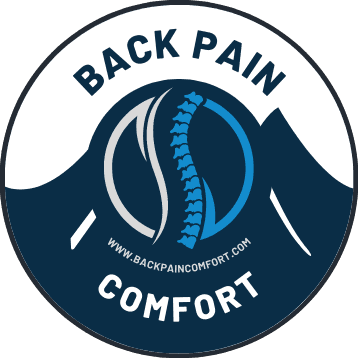
Waking up with a backache can ruin your day before it even starts. For many people, this discomfort is a common problem, and often, the culprit is their mattress. Choosing the right mattress is crucial for back pain sufferers. It’s not just about getting a good night’s sleep; it’s about waking up feeling refreshed and pain-free. This article will guide you through the process of selecting a mattress that can help alleviate back pain, ensuring that you start each day on the right note.
Understanding Back Pain and Mattresses
Back pain arises from different causes like health issues, posture, and mattress quality. An unsupportive mattress can aggravate back pain, while a suitable one offers both relief and comfort. Choosing the right mattress is key to managing back pain, ensuring it supports the spine correctly and provides a balance of firmness and softness to alleviate discomfort and improve overall sleep quality.
Types of Mattresses
- Memory Foam: Conforms to your body, offering support and pressure relief. However, some may find it too soft.
- Innerspring: Traditional mattresses with coils that provide a firmer surface. They are good for those who need more support.
- Latex: Offers a balance of support and comfort, and is also hypoallergenic and durable.
- Hybrid: Combines innerspring coils with foam or latex layers, offering both support and comfort.
Firmness Level
Support and Comfort
- Support: Refers to how well the mattress keeps your spine aligned. A supportive mattress will maintain the natural curve of your spine.
- Comfort: About how the mattress feels. It should not cause pressure points, especially in the hips and shoulders.

Mattress Size
Selecting a mattress size that allows ample movement is crucial for comfort. Couples, in particular, should consider larger options to ensure both partners have enough space. This choice enhances sleep quality by preventing cramped conditions and allowing for comfortable positioning throughout the night, leading to a more restful and undisturbed sleep experience for both individuals.
Tips for Choosing the Right Mattress
- Know Your Sleeping Position: Your preferred sleeping position affects the type of support you need. Side sleepers may need a softer mattress to cushion the hips and shoulders, while back and stomach sleepers might benefit from firmer support.
- Consider Your Weight: Heavier individuals might need a firmer mattress to prevent sinking too deep, which can misalign the spine.
- Test the Mattress: If possible, lie on the mattress for at least 10-15 minutes in your usual sleeping position.
- Read Reviews: Look for reviews from people who have back pain and see how the mattress worked for them.
- Check the Return Policy: Ensure that the mattress comes with a risk-free trial period, allowing you to return it if it doesn’t work for you.
Additional Considerations
- Pillows and Bedding: The right pillows and bedding can also help alleviate back pain. Choose a pillow that supports the neck and keeps the spine aligned.
- Lifestyle Changes: Along with the right mattress, consider incorporating stretches and exercises to strengthen the back.
- Consult a Doctor: If you have chronic back pain, consult a healthcare professional before making a mattress decision.

When to Replace Your Mattress
Typically, a quality mattress lasts about 7-10 years, but if back pain worsens, consider replacing it earlier. Key indicators that a mattress needs replacement are visible sagging, the presence of lumps, or consistent morning back pain. These signs suggest the mattress is no longer providing the necessary support and comfort, and thus may be contributing to the aggravation of back pain, warranting a prompt upgrade.
Conclusion
Selecting the right mattress is a significant step in managing back pain. Remember, what works for one person may not work for another. It’s about finding a balance between support and comfort that suits your body and sleeping habits. With the right mattress, you can transform your sleep experience, wake up feeling rejuvenated, and say goodbye to those morning back pains. Make your sleep a priority, and your back will thank you for it!






